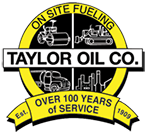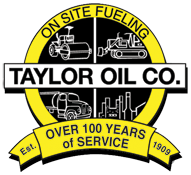Preventing Your Fleet from Diesel Fuel Gelling This Winter – Gelling is nothing you want to happen to your machines in the cold. Diesel fuel gelling is when the paraffin wax starts to thicken and turn into a cloudy mixture when the temperatures begin to fall. This problem can get so bad that the wax can clog fuel filters and solidify, making it difficult or impossible for the fuel to flow.
Your engine becomes useless and you can’t be productive. You lose money and maybe even some customers during all that downtime. This phenomenon can occur when temperatures drop below 32 degrees Fahrenheit; however, the exact temperature at which this can happen does vary by fuel batch.
Don’t want to risk it? Heed these tips to prevent your diesel fuel from gelling in your fleet this winter.
Heated Storage
The best way to prevent gelling is to control the temperature of the facility in which the engine is stored. When the engine runs, the fuel moves and flows freely, with little opportunity to solidify. If you can, store your vehicles and equipment in a heated garage or climate-controlled structure. We realize this isn’t always possible for large construction fleets, which spend a majority of their time outdoors. So…
Fuel Treatment
Another possibility is to add a winter diesel fuel additive to prevent that wax from gelling and solidifying. This is an alternative to storing vehicles indoors. Many fuel additives also provide many other winter weather benefits, as they help to improve cold engine starts and remove harmful deposits from fuel injectors.
Kerosene
Mixing in certain amounts of kerosene with your diesel fuel has been known to reduce the plug point temperature, which refers to the temperature at which paraffin wax crystals solidify and start to clog fuel filters.
Many winter climate fuel suppliers like Taylor Oil offer diesel fuel that has already been pre-mixed with kerosene for your convenience.
Better Care
In the winter months, your vehicles and equipment will need a little more TLC from you. You must take the proper precautions or risk failure. You can do this by adding kerosene, storing the diesel engine in a temperature-controlled facility or adding fuel additives. Otherwise, you may be taking your trucks and generators out of service right when you need them most.
Contact Taylor Oil
To learn more about the diesel fuel we provide or to set up a regular fuel schedule, contact us today. Browse our site to find out more on our fuels and diesel exhaust fluid.


